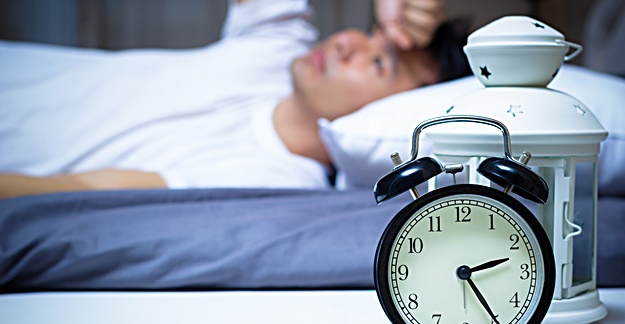Last updated:
Browse This Article
Sleep
- On average, most adults require 7 or 8 hours of sleep to function well.
- Adolescents need an average of about 9-1/2 hours.
- Exposure to light affects our circadian biologic clock. Light travels from the optic nerve to the brain, triggering the complex process of awakening. This includes suppressing the release of hormones such as melatonin that promote sleepiness.
- Women are more likely to report insomnia because menopause, pregnancy and menstruation tend to disrupt sleep.
- Older people, whose circadian clocks become less sensitive with age and who may also endure pain from arthritis and other conditions, are more likely to have insomnia. They also tend to experience Advanced Sleep-Phase syndrome in which people go to bed early, and awaken very early.
- Delayed Sleep-Phase Syndrome is a circadian rhythm disorder which is characterized by falling asleep in the wee hours and waking later in the day; it is common in many adolescents.
- Restless Legs Syndrome — the irresistible urge to move one’s legs, especially when at rest — is another disorder that can disturb sleep; it is treated differently than insomnia.
- Sleep Apnea — in which breathing pauses briefly and often during sleep — is another disorder that may manifest as sleep maintenance insomnia; is also treated differently than insomnia.
- Pure insomnia is rare; most insomnia is linked to other conditions.
Potential Causes of Insomnia
-
- Stress, anxiety, depression and other mood disorders
- Jet lag, shift work and erratic bedtime schedules
- Pain, brain injuries, strokes, gastrointestinal disorders such as acid reflux, diabetes and other medical conditions
- Medications for colds, allergies, asthma, pain, high blood pressure, heart disease, high cholesterol, thyroid disorders, some autoimmune diseases (Lupus, Rheumatoid Arthritis, Sjogren’s syndrome) congestive heart failure, depression, joint inflammation and birth control.
- Exposure close to bedtime to artificial light from televisions, computers, iPads, and so on.
- The lunar cycle: a recent study showed that during a full moon, study participants took longer to fall asleep, slept a bit less and felt less rested.
- Indulging in alcohol, caffeine and too much food close to bed time.
Treating Insomnia without Drugs
-
- Stay on schedule. Rise at the same time every day — even if you haven’t slept well the night before. The sleep deprivation eventually catches up, and people will start to sleep easier at night.
- Avoid napping; it makes it harder to fall asleep at night.
- Stay away from caffeine and alcohol before bedtime.
- Exercise regularly and at least several hours before bedtime.
- Use your bed only for intimacy and sleep.
- Discuss with your physician alternatives to current medications that may be disrupting your sleep.
- Make your bedroom sleep friendly: cool, dark and comfortable. (Fido and Whiskers need to find another place to sleep) Turn off the television well before you want to go to sleep (the same goes for your laptop, iPad, and other electronic devices.)
- Try yoga and other relaxation techniques.
- Consider therapy to ease anxiety about sleep (and your inability to get enough of it), and to develop a more positive attitude about sleep.
- If you can’t fall asleep or stay asleep, leave your bedroom and engage in a low-key activity. This will help avoid connecting the bed and bedroom with anxiety and frustration.
- Adapt a system of sleep restriction. Keep a sleep diary of how many hours you sleep each night and stay in bed only for that amount of time. Gradually increase that amount as falling and staying asleep becomes easier.
Helpful Articles about Insomnia and Behavioural Remedies
10 Types of Meds that Can Cause Insomnia (AARP)
Cheating Ourselves of Sleep (New York Times Well Blog)
Steps for More and Better Sleep (New York Times)
The Case for Sleep Medicine (New York Times)
Sleep Hygiene (Psychiatric Times)
Prescription Sleeping Pills: What’s Right for You? (Mayo Clinic Staff)
Overcoming Insomnia Without the Pills (New York Times)
Restless Leg Syndrome and Sleep (Sleep Foundation)
Can’t Sleep? What to Know about Insomnia (Sleep Foundation)
Sleep Drive and Your Body Clock (Sleep Foundation)
Sleepless in America (Psychology Today)
Touched by the Moon (Psychology Today)
–Abigail Sullivan Moore






